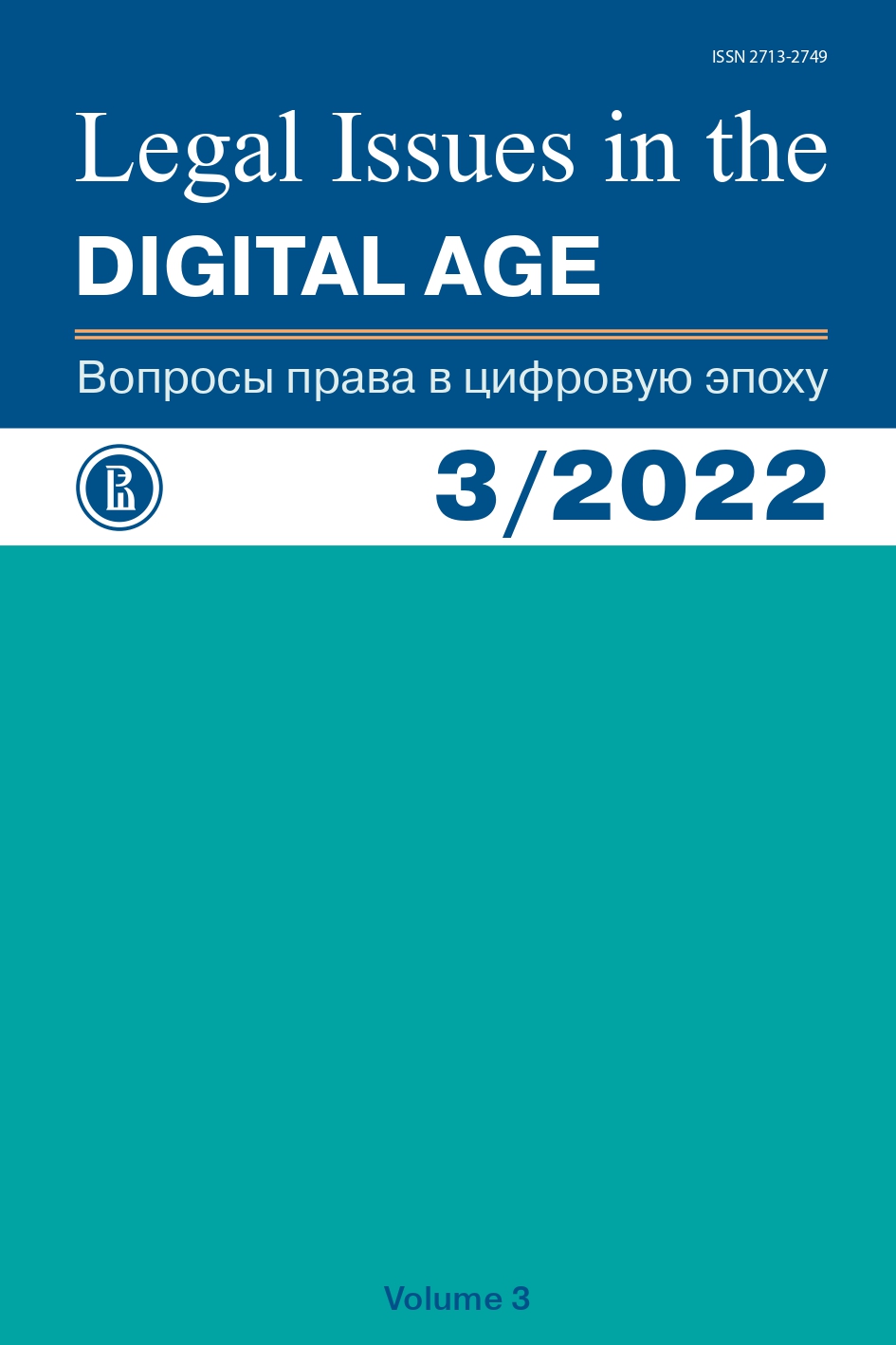Regulating Data Systems of Road Transport Telematics in Russia and Worldwide
Abstract
The paper is focused on the problem of regulating the operation of data systems of road transport telematics in the Russian Federation to satisfy the widening needs of governments and municipal authorities, natural and legal persons who access and use the relevant data. The authors identify two main approaches to improving the law applicable to road transport telematics: comprehensive regulation and selective, point-by-point regulatory changes. Both approaches envisage introducing amendments to the law, removing gaps including by defining the legal regime applicable to data generated through the use of transport telematics, creating an environment for efficient operation of the Autonet, and protecting personal data in the same time. The subject of the paper is domestic regulations governing social relationships in transport telematics data systems, in particular, those regarding the procedures for the development, operation and use of such systems including collection, storage, processing and availability of data generated by vehicles including odometers operated in the territory of the Eurasian Economic Union; the requirements to cartographic support for transport telematics data systems; international regulatory experience of creating, operating and using telematics data systems and the legal regime governing the relevant data. The objective of research is to study how current regulation can be improved and administrative barriers removed to support the implementation of the Autonet component of the National Technology Initiative. The research methodological approach of the study has demanded implementation of both general and special research methods such as philosophic one, formal logical method, structural systemic one, historical, formal legal, dogmatic, interpretative, comparative and the method of expert assessment. The general research methods mentioned involved the techniques such as structuring, description, analysis and synthesis of research findings resulting from the analysis of domestic and international regulations. Based on the analysis made, the authors of the study identified gaps and conflicts in the legislative regulation in the field under consideration. Suggestions and recommendations aimed for improving situation are made.
References
Chuchaev A.I., Malikov S.V. (2019) Liability for damage caused by a highly automated vehicle: state and prospects. Aktualnyie problemy rossiyskogo prava= Issues of Russian Law, no, 6. pp. 117–124 (in Russ.) DOI: https://doi.org/10.17803/1994-1471.2019.103.6.117-124
Khabrieva T. Ya. (2018) Law and challenges of digital reality. Zhurnal rossiyskogo prava=Journal of Russian Law, no. 9, pp. 5–16 (in Russ.)
Khabrieva T. Ya., Chernogor N.N. (2018) Law in front of the digital reality. Zhurnal rossiyskogo prava=Journal of Russian Law, no. 1, pp. 85–102 (in Russ.) DOI: https://doi.org/10.12737/art_2018_1_7
Komarov V.V., Garagan S.A. (2012) Intellectual tasks of telematics transport systems and intelligent transport system. T-Comm: Telecommunicatsii i transport= Telecommunication and Transport, vol. 6, no. 4, pp. 34–38 (in Russ.)
Komarov V.V., Garagan S.A. (2016) Using the Era-GLONASS system infrastructure as the basis of telematics transportation systems. Transport v Rossiskoi Federatsii=Transport in Russian Federation, vol.62, no. 1, pp. 22–25 (in Russ.)
Tikhomirov Yu. A. (2020) Law: the moment of rest, or the anticipatory impact on social processes. Zhurnal rossiyskogo prava=Journal of Russian Law, no. 4, pp. 5–16 (in Russ.) DOI: https://doi.org/10.12737/jrl.2020.038
Zubarev S.M. (2018) Implementation of the National technological initiative: correlation of concepts “administrative barriers” and “legal barriers”. Administrativnoe pravo process=Administrative Law and Process, no. 10, pp. 4–9 (in Russ.)

Authors who publish with this journal agree to the Licensing, Copyright, Open Access and Repository Policy.






